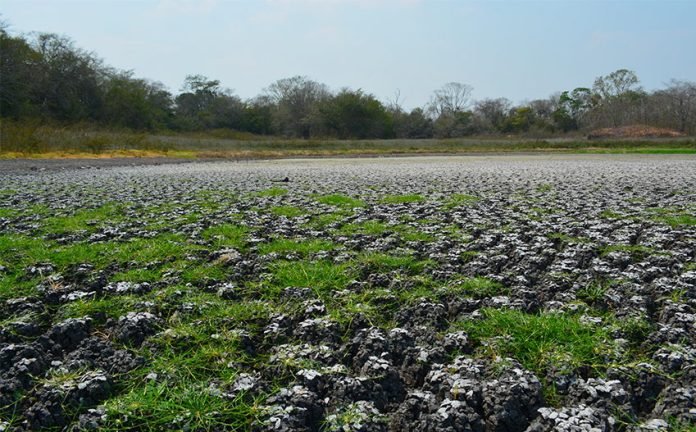Lack of rainfall in southeastern Mexico has depleted at least half of the Calakmul Biosphere Reserve’s bodies of water, seriously affecting the region’s indigenous communities and wildlife.
The reserve, located in Campeche at the base of the Yucatán peninsula and on Mexico’s border with Guatemala, has been suffering from drought since 2000, a problem that has only compounded year after year. Calakmul is part of Mexico’s largest rainforest and home to 1,600 plant varieties, including 73 different types of orchids and 86 different mammals, some of which are in danger of extinction.
According to information from the state’s Ministry of the Environment, Biodiversity and Climate Change, the drought has forced jungle animals to migrate out of their natural habitat in search of water. Already this year at least three tapirs and one jaguar have been found dead on the area’s roads, the ministry reported.
The Alvarado lagoon, which for years supplied water to more than 40 towns in the area, is practically dry, as are the Zoh, Las Carolinas and La Valeriana lagoons. This year the drought has been so intense that there is not even enough water to supply residents of Xpujil, the municipal seat of Calakmul.
The lack of water not only affects residents, flora and fauna, it also impedes the region’s capacity for tourism generated by the biosphere’s archaeological ruins and the Maya Train, which is to cut through the reserve’s jungle.
Source: Jornada (sp)
